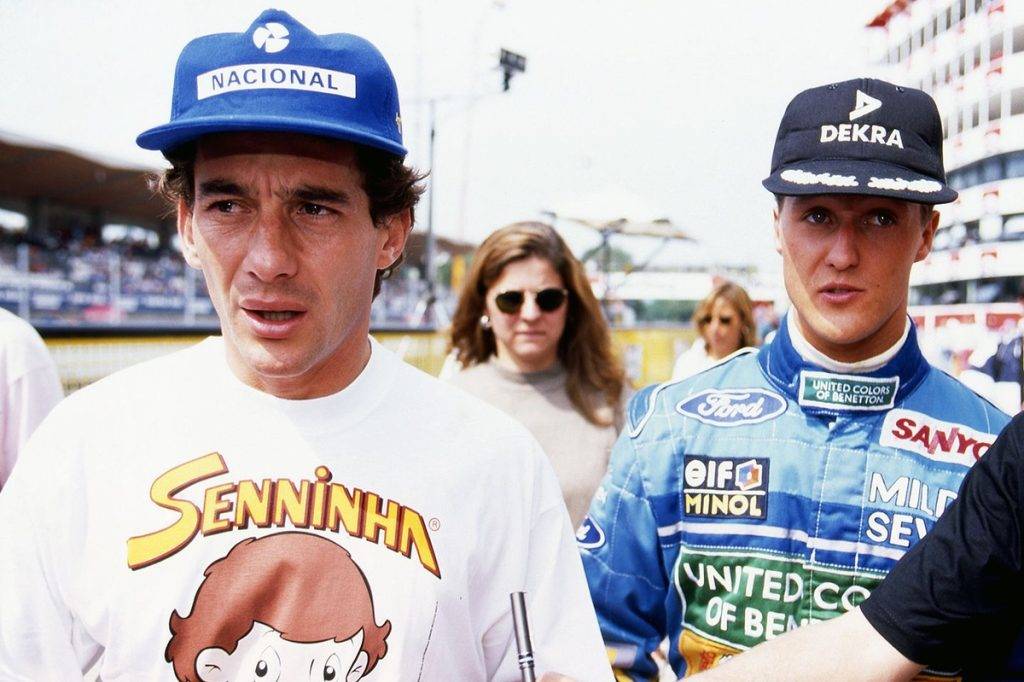Ayrton Senna and Michael Schumacher: The Hidden Camaraderie in a Time of Rivalry
In a season that promised thrilling head-to-heads, the tragic events of the 1994 San Marino Grand Prix cast a long shadow over Formula 1, forever altering the landscape of the sport. Jonathan Wheatley, a mechanic who would later rise to prominence as team principal at Sauber, recalls his front-row seat to the growing rivalry between Ayrton Senna and Michael Schumacher—one that was underscored by a surprising fraternity beneath the fierce competition.
The Early Days of a Fierce Rivalry
In 1994, Jonathan Wheatley was entrenched in his role as a mechanic at Benetton, witnessing the nascent battles between the rising star Schumacher and the legendary Senna. The season was marred by controversy, with allegations of rule-breaking swirling around the Benetton team. The on-track skirmishes often painted a picture of animosity, as the two drivers were vocal in their criticisms of each other’s conduct.
However, Wheatley reveals a different dynamic that might surprise many. “We had this ongoing relationship,” he told F1’s Beyond the Grid podcast. “Michael would set a pole position, and when Ayrton came out of the garage, I’d show him the pitboard with Michael’s time.”
An Unexpected Bond Behind the Scenes
This friendly rivalry was tinged with mutual respect. According to Wheatley, both drivers would keep a close eye on each other’s performance, pushing each other to greater heights. “It was as if to say, ‘Where’s my time on the pitboard?’” Wheatley recalls, illustrating a camaraderie that transcended mere competition. This bond became more palpable during the harrowing events at Imola.
The Tragedy at Imola: A Turning Point
The weekend of the San Marino Grand Prix is etched into the annals of motorsport history, not only for its heart-wrenching losses but also for the way it exposed the fragility of life within the sport. Damage and danger were ever-present, exemplified by Rubens Barrichello’s near-fatal crash and Roland Ratzenberger’s tragic death the day before Senna’s own fatal incident.
In Wheatley’s eyes, the events of that fateful weekend were a brutal reminder of the risks professional drivers and their teams faced. “Imola 1994 is the worst weekend I can ever remember,” he admitted. “I can still remember Mick Cowlishaw, the chief mechanic, coming up to me after Senna’s accident, knowing how much it affected me.”
Reflections on a Dark Chapter
The emotional weight of that weekend remains profound for Wheatley. He reflects on how the camaraderie that existed among the drivers was eclipsed by tragedy, a sentiment echoed by many in the paddock. “We didn’t want to get on the plane,” he recalled. “What’s the next thing that’s going to happen?”
The 1994 season, once anticipated as a thrilling battle of champions, morphs into a narrative that encompasses loss, solidarity, and a shared understanding of the sport’s inherent dangers. Through Wheatley’s lens, the lesser-known friendship between Senna and Schumacher reminds us that even amid rivalry, the bonds forged through mutual respect and shared experience hold a unique place in the story of Formula 1.


